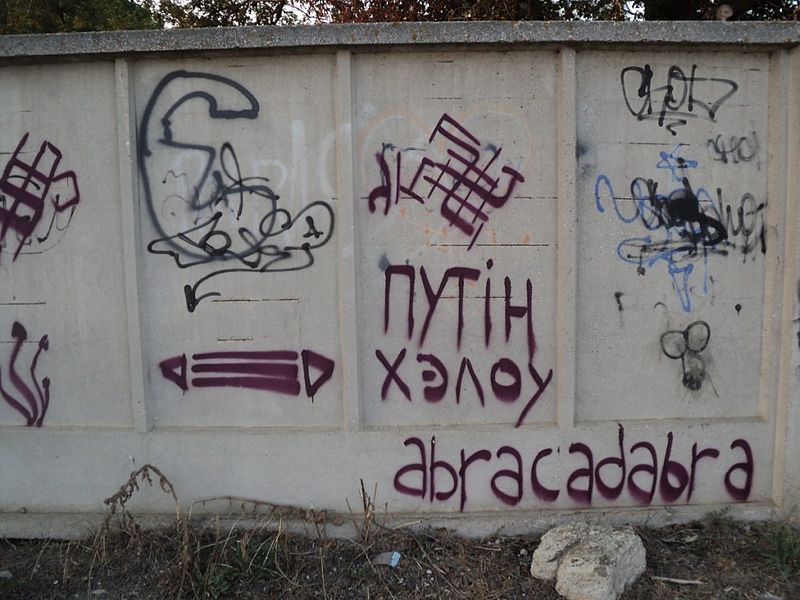
Image by Pozytyv
Russia has completed a fence along the border of the Crimean peninsula, annexed by Moscow in 2014, and the Ukrainian mainland. The Russian security service, the FSB, stated the barrier was built to stop Ukrainian saboteurs, along with drugs and other illegal contraband.
It Looks Like Vlad May Want To Stay
The fence, more than 60km (37 miles) long, is topped with barbed wire and has hundreds of sensors. It spans the neck of land connecting Crimea with Ukraine’s Kherson region, reported the BBC. Most of its sensors pick up vibrations from any potential intruders, the FSB said, but some are also radio-location devices. Russia has similar equipment along its northern and eastern borders.
“The planned construction of engineering structures and the installation of an intricate system of alarm sensors has been completed in the area of the Isthmus of Perekop. Planning and developing the documentation started in 2015. The construction and installation of equipment ended in December 2018,” declared the press service of the Federal Security Service’s (FSB) Border Service for Russia’s Republic of Crimea and Sevastopol, reported Russian state news agency TASS.
Tensions between Ukraine and Russia have skyrocketed since the incident in the Sea of Azov where Russian naval vessels fired on Ukrainian warships attempting to navigate the Krech Strait which is controlled by Moscow. The hot war in Donbass also continues with soldiers on both sides, as well as civilians, dying on a regular basis.
The government procurement web site earlier reported that setting up this barrier in Crimea would cost more than 200 million rubles ($2.9 million). The fence’s construction should provide high durability, long service and should be cost effective when in operation as well. The service life guarantee of the fence and its equipment is at least 10 years. The structures are resistant to tough climate conditions (including humidity of up to 98% and air temperatures of up to plus 65 degrees), added TASS.

